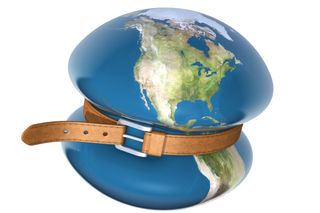Intel: Innovation only way out of recession
Intel says firms need to stop making cuts and start investing in innovation.

Intel has called on businesses to innovate their way out of the recession, saying cutting costs won't help.
While reducing overheads and slashing jobs might seem the easy answer to a recession, they aren't the right tactics, said Christian Morales, general manager of Intel for Europe, the Middle East and Africa (EMEA). speaking today in Geneva.
Instead, he advised companies to keep on investing. "You keep on investing in what is absolutely critical and keep research and development budget as much as you can, and keep innovation as much as you can," he said.
"Technology innovations don't stop during the downturns," he said. "It's important to keep on investing in what makes sense to improve the different businesses we're working on."
Now is the time to get ahead of your competitors, he explained. "You need to get out of this recession with better products that are more exciting for costumers," he added.
That's the tactic Intel has followed, he said, citing a $7 billion investment in new production facilities earlier this year. "Each time we get important recessions... we introduced new products," he said.
"In spite of all the recessions, even if this one is worse than what it ever was [before], there's always an introduction of new products... so we get out of this recession stronger than we went in, at least from a product standpoint," he explained.
Get the ITPro. daily newsletter
Receive our latest news, industry updates, featured resources and more. Sign up today to receive our FREE report on AI cyber crime & security - newly updated for 2024.
He said Intel expects its current rate of innovation to continue, with Moore's Law driving change for several more generations of products. "We thought it wouldn't last forever, but each year, engineers overcome the technical issues."
Referencing Intel's tick/tock release cycle, which sees the firm introduce a new process first, and architecture next, he said: "We have been delivering like a Swiss clock, if I may say."
While the economy may seem dire, it is improving, according to Morales. "[There are] signals it's a bit better, but there are still many challenges to deal with," he said.
Morales said his firm expected to see just slight growth in the PC market this year, but sees the market doubling in the next four years. One driver of this will be more and more people and devices getting online, with 15 billion being added in the next several years, including sensors and other real-time gadgets.




